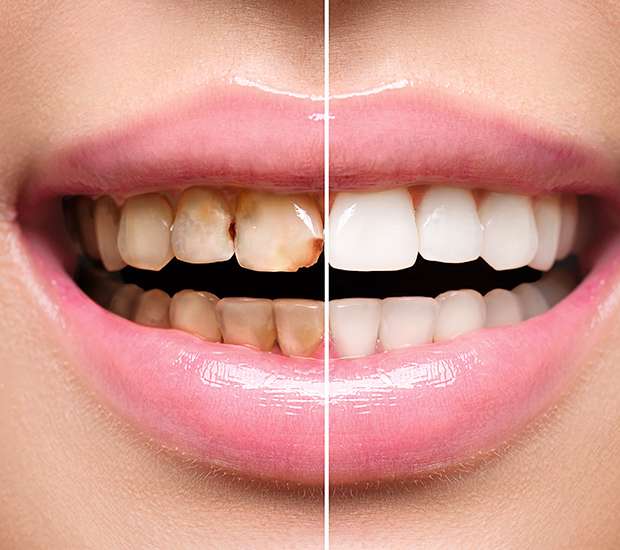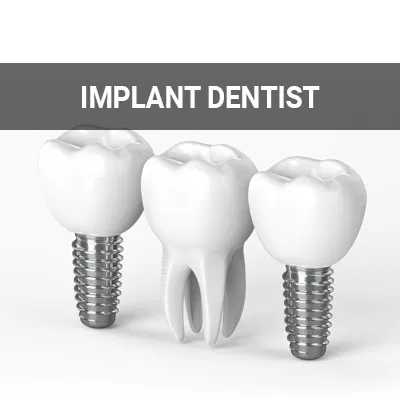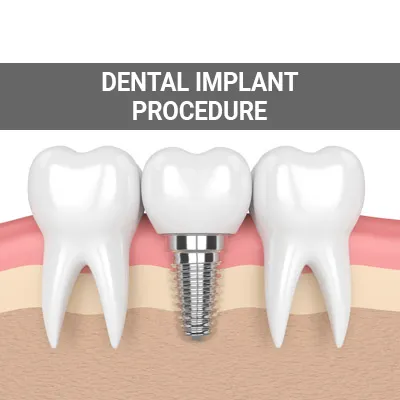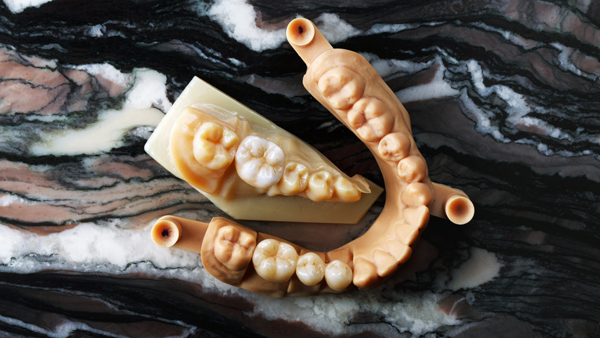Dental Implant Restoration Charlotte, NC
Dental implant restorations are one of the most popular tooth replacement options available for people who have lost one or more teeth. Dentists insert these implant posts surgically into the jawbone, so they replace the root of the lost tooth or teeth. Dental implant restoration is a process of restoring the tooth prosthesis, also known as a crown, by supporting it with dental implants.
Dental implant restoration is available at Randolph Dental Care in Charlotte and the surrounding area. This dental restoration is popular and preferred by many because they are natural-looking, long-lasting, and restores full dental function. Find out how you can get dental implants by calling (704) 366-3622 to book an appointment.
An overview of dental implant restoration
According to the Center for Disease Control and Prevention, and data from the National Health and Nutrition Examination Survey, 91% of adults aged 20–64 had dental caries, and 27% had untreated tooth decay that can lead to tooth loss. But tooth decay is not the only factor that can lead to tooth loss; gum disease is another common cause. Also, many people lose teeth to accidents or trauma. By the age of 44, an estimated 69 percent of Americans have lost at least one tooth. Tooth loss is growing, and the need for solutions is growing with it.
One popular and effective solution is dental implants. They offer an alternative to dentures that need to be removed and cleaned. Implants give the patient an option that most closely resembles natural teeth. Though dental implants are made to last for decades, they still need to be maintained, and that is where implant restoration comes in. Dental implant restoration involves restoring the strength, appearance, and function of a dental implant that has become loose, damaged, or experienced another form of complication.
“Tooth loss is growing, and the need for solutions is growing with it.”
Dental Implant Restoration Basics
Though dental implants are generally successful, there are occasional instances where restoration or replacement is necessary. Fortunately, a failed implant is easy to remove, and the procedure is relatively common for dentists to perform. If the dentist decides that the implant needs replacement, they will remove it and carefully clean the area. As a result, there will be no bone loss around the implant site if there is no need for a bone graft procedure.
However, if there is bone loss, the dentist may use a bone graft to make the implant restoration process possible. However, it may take several months for the bone to heal before a new implant can be inserted. The dentist may discuss ways to mitigate the risk factors that led to the initial implant failure during the healing process. These preventive measures may include quitting smoking, using mouthguards, and more.
“Though dental implants are generally successful, there are occasional instances where restoration or replacement is necessary.”
Overview of the implant restoration procedure
Each restoration procedure is unique. If complications develop with the dental implant and restoration is necessary, the dentist will conduct an oral examination to determine the severity of the issues and the underlying cause. Our team will answer any questions you may have. The dentist may recommend other dental treatments, such as gum disease treatment, bone grafting, and gum grafting.
When replacing a dental implant, the current implant is typically removed and replaced with a screw-retained or cement-retained restoration. These are the two primary types of dental implant restorations. According to FOR.org, complication rates of both are nearly identical at around 3%. A screw-retained restoration provides secure retention and is easy to tighten if it becomes loose, but it may not be as cosmetically pleasing. Many consider cement-retained restorations to be more attractive, but they are often more difficult to adjust if issues with the implant develop. Our team can help you decide which type is best suited to you.
“If complications develop with the dental implant and restoration is necessary, the dentist will conduct an oral examination to determine the severity of the issues and the underlying cause.”
Check out what others are saying about our dental services on Yelp: Dental Implant Restoration in Charlotte, NC
Dental Implant Restoration Aftercare Instructions
Due to the invasive nature of dental implant restoration, patients may experience some swelling or sensitivity at the operation site. While this is normal, proper oral care is vital to prevent infection and irritation. The dentist may suggest getting painkillers to alleviate swelling and discomfort. Ice packs or cold compresses can also work.
Patients should take some time off work after the procedure for recovery. The oral cavity will feel normal within two to five days. However, if sensitivity and pain persist for too long, an appointment with the doctor may be in order. After completing the restoration procedure, it is vital to practice good oral hygiene, including regular brushing and flossing, and regularly visit the dentist for checkups.
“…proper oral care is vital to prevent infection and irritation.”
Questions Answered on This Page
Q. Why does someone need dental restoration?
Q. What is involved in a typical dental restoration procedure?
Q. Is dental implant restoration common?
Q. How should I take care of myself after dental implant restoration?
Q. What other dental implant issues may occur?
People Also Ask
Q. What is restorative dentistry?
Q. What does the implant recovery process look like?
Q. When should people seek an implant dentist?
Other Dental Implant Issues
Occasionally, dental implants may become fractured due to the material and design of the implant, the lack of fit between the implant and crown, and parafunctional habits (such as bruxism). It is possible to remove these fractured implants via an apicoectomy. Alternatively, the coronal portion of the fractured implant may be removed only. Loose dental implants can also be replaced, though they are rare.
During a consultation, we will determine the most effective treatment option to meet the patient's needs. We will then walk the patient through the entire treatment process and help them through the recovery stage.
“During a consultation, we will determine the most effective treatment option to meet the patient’s needs.”
Frequently Asked Questions
Q. Is dental implant restoration painful?
A. When you come to the office, the dentist will discuss pain management options with you. Afterward, you can use over-the-counter pain relievers to manage pain. The pain with dental implant restoration is usually minimal if you follow the dentist's instructions.
Q. What happens if damages occur to the implant restoration?
A. The repair procedure depends on the part of the implant that needs repair. If the dental crown suffers damage, the dentist can replace or repair it without touching the titanium implant. If the problem is with the actual implant, the dentist may need to remove the implant and perform a bone graft procedure. It will be impossible to replace a loose implant if the dentist does not correct the issue with the jawbone.
Q. Will other implants fail due to one loose implant?
A. Dental implants have a success rate of more than 95%, which means the chances of failure are low. It is rare for one implant to fail, and even if it does, the others should remain intact. As a precaution, if an injury caused the failure of one implant, you should have the entire teeth checked to ensure nothing else is damaged.
Q. Can I still get dental implants if my tooth went missing a long time ago?
A. Usually, the longer you go without replacing a lost tooth, the lesser your chances of getting dental implants due to loss of bone density. However, this is not a deal-breaker. The dentist may augment the bone or suggest mini dental implants for the tooth restoration process.
Q. How long will my dental implant restoration last?
A. With the proper care, dental implant restorations can last decades. Most patients will not experience any issues after restoration.
Dental Implant Terminology
Call Us Today
Our team offers dental implant restoration to patients who experience complications with artificial teeth supported by implants. If you feel you need a restoration or have concerns with your implant for any reason, give us a call at 704-366-3622 and schedule a time to come in for a consultation.
Helpful Related Links
- American Dental Association (ADA). Glossary of Dental Clinical Terms. 2024
- American Academy of Cosmetic Dentistry® (AACD). Home Page. 2024
- WebMD. WebMD’s Oral Care Guide. 2024
About our business and website security
- Randolph Dental Care was established in 2016.
- We accept the following payment methods: American Express, Cash, Check, Discover, MasterCard, and Visa
- We serve patients from the following counties: Mecklenburg County
- We serve patients from the following cities: Charlotte, Matthews, Huntersville, Fort Mill, and Pineville Mint Hill
- Norton Safe Web. View Details
- Trend Micro Site Safety Center. View Details
Back to top of Dental Implant Restoration











